Editorial: Tropes Vs. Women: The Damsel In Distress
Published on March 11th, 2013 in: Editorial, Feminism, Gaming |By Paul Casey
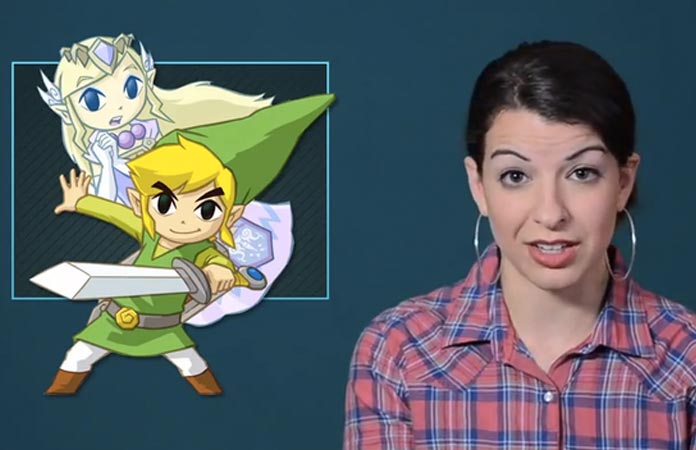
Anita Sarkeesian has released the first video in her twelve part Tropes vs. Women series, which will look at the representation of women in video games. You should watch it. Not least because you can see how something so uncontroversial can cause so much phony outrage. There is little here that should surprise anyone who has been aware of their own existence for more than a few years. There is nothing that could be considered in any way “extremist.” Sarkeesian is sober, clear, and fair. She also possesses the required humor needed to make this subject palatable to a wide audience.
Blu-Ray Review: Skyfall
Published on February 28th, 2013 in: Blu-Ray, Current Faves, DVD/Blu-Ray Reviews, Feminism, Movie Reviews, Movies, Reviews |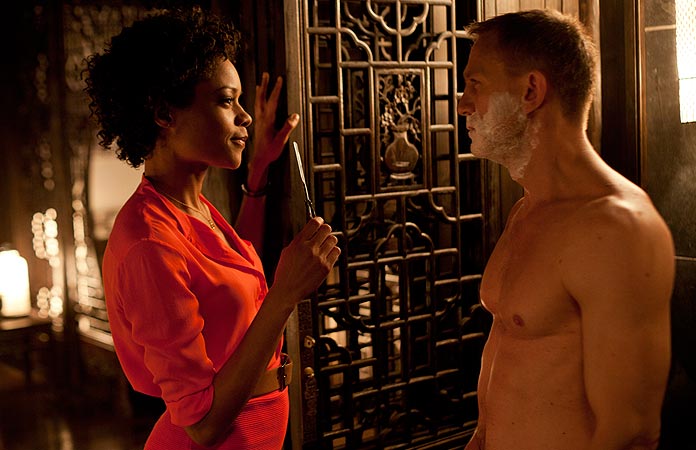
Photo ©2012 Danjaq, LLC, United Artists Corporation, Columbia Pictures Industries, Inc. All rights reserved.
Oh, James Bond fans. For everyone who was electrified by Daniel Craig’s debut in Casino Royale, there were at least two who loathed the follow up, Quantum of Solace. For all Bond fans, Skyfall should be a revelation. It fulfills the promise that Casino Royale made: that Craig’s Bond is one of (if not) the best, and that the character has finally arrived in the new millennium.
Music Review: Las Acevedo, Homemade Cookies EP
Published on February 27th, 2013 in: Culture Shock, Current Faves, Feminism, Music, Music Reviews, Reviews |
Sometimes judging a record by its sleeve yields unexpected rewards. While reading the blog Puerto Rico Indie in search of news about a rumored upcoming release by Rita Indiana, I came across a free compilation put together by the up-and-coming band Las Acevedo. The hand-drawn and collaged sleeve art, with its depiction of a purple-haired, antlered girl snuggling a guitar, drew me in, and within a matter of seconds I found myself purchasing their EP Homemade Cookies from their Bandcamp site.
Music Review: Emily Bindiger, EMiLY
Published on February 25th, 2013 in: Current Faves, Feminism, Music, Music Reviews, Retrovirus, Reviews |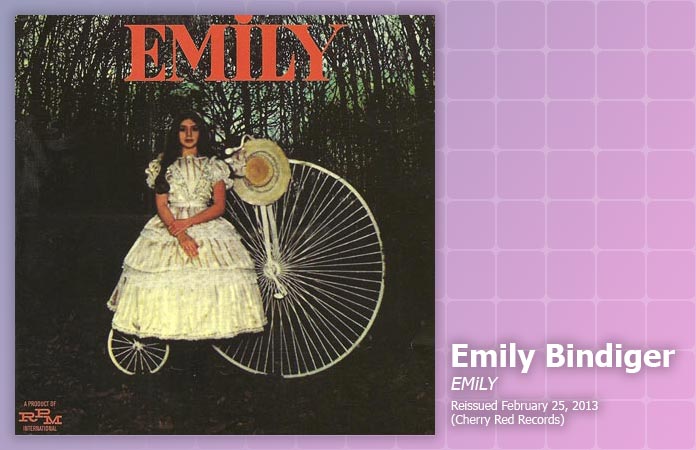
Before Kate Bush or Fiona Apple, there was Emily Bindiger. While on summer leave from the High School of the Performing Arts in New York, Bindiger was cast in the legendary, star-making French revue Double V. She dropped out of school and traveled to Paris alone to appear in the show. Through Double V, Bindiger met Michel Polnareff, who introduced her to the members of the psychedelic pop band Dynastie Crisis. Bindiger’s lone solo album, EMiLY, was released through Pathe in 1972. In honor of the album’s fortieth anniversary, British label Cherry Red has given EMiLY its MP3 debut.
Assemblog: February 22, 2013
Published on February 22nd, 2013 in: Assemblog, Books, Copyright/Piracy, Feminism, Film Festivals, Gaming, Horror, Legal Issues, Movies, Science and Technology, The Internets, Trailers, TV |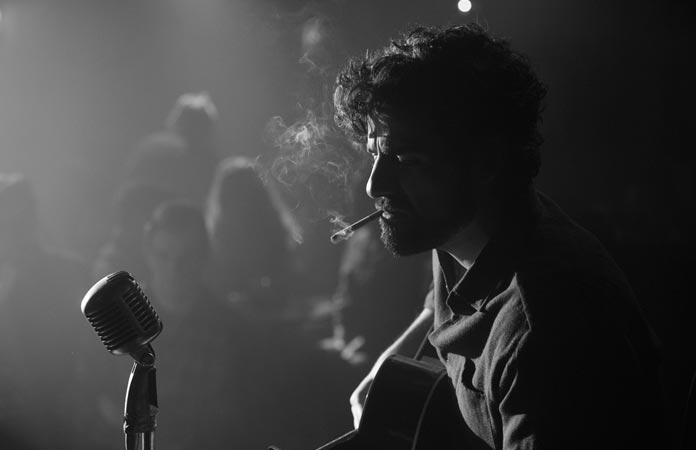
Inside Llewyn Davis
New this week on Popshifter: Paul takes Men’s Rights Advocates to task in his article on Women in Gaming and tells tales of pro wrestling redemptions; Chelsea loves Lady Lamb the Beekeeper’s first full-length album RiPLEY PINE; I fawn over new releases from Parenthetical Girls, Dawn McCarthy & Bonnie “Prince” Billy, and Iceage, share the latest from Big Black Delta, and review French Horn Rebellion’s newest EP Love Is Dangerous; and Hanna admires both the humor and scientific methods found in The Marriage of True Minds from Matmos.
Music Review: Lady Lamb the Beekeeper, RiPELY PINE
Published on February 19th, 2013 in: Current Faves, Feminism, Music, New Music Tuesday, Reviews |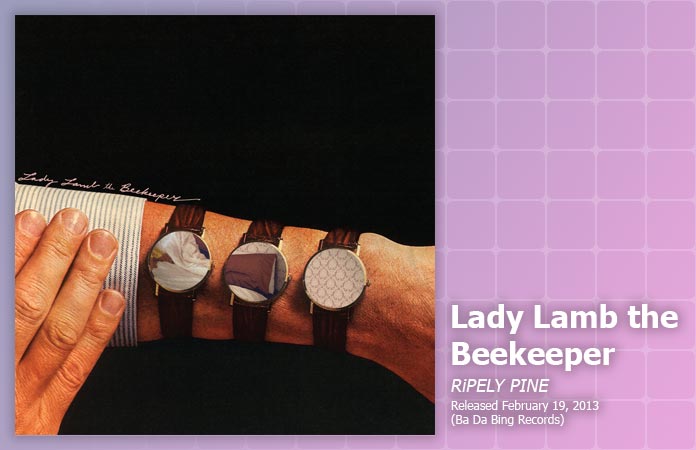
Over the past few years, singer/songwriter Aly Spaltro has beguiled New England audiences with her project Lady Lamb the Beekeeper. Her fractious, off-kilter songwriting is well-matched by a voice that seems to explode out of her. After releasing a series of demos, Lady Lamb the Beekeeper is poised to take over the indie world with her first studio album, RiPELY PINE.
While the sparely produced, independent Lady Lamb releases foregrounded Spaltro’s considerable talents, RiPELY PINE finds her experimenting with a more commercial sound. The clean production, with its new-found focus on the slow-burn dynamics of Spaltro’s songwriting, comes off like the aural equivalent of a leather-bound book with gilt-edged pages and four-color illustrations. Her minimal guitar riffs bristle with closely held emotion, as though she were denying herself a catharsis. The driving percussion and echoing violin that drive “Bird Balloons” emphasize the song’s theme of anger borne from love. The waltz-time instrumental break in “Mezzanine” pits a staccato prog-rock guitar solo against a mellifluous clarinet chart that, combined with the lyrics about ghosts and haunted houses, could break your heart. Spaltro’s dense arrangements and frequent use of odd time signatures, combined with Nadim Issa’s straightforward and pleasingly mid-range production, suggests the influence of Throwing Muses. Like Lady Lamb, songwriters Kristin Hersh and Tanya Donnelly negotiated a mid-point between their knotted, intuitive personal mythologies and the rewards of finding a wider audience, and as with Spaltro’s work, their albums had an appealing tension between these poles.
Women In Video Games Benefit Us All
Published on February 18th, 2013 in: Feminism, Gaming, Over the Gadfly's Nest, The Internets |By Paul Casey

Anita Sarkeesian
John Walker, the co-editor of video game website Rock, Paper, Shotgun has written something rather good about women in video games, and the ongoing obfuscation from “male rights activists” (MRAs). You should read it, as it is one of the best recent bits on the most important issue in video games of the last year, and probably 2013, too. Walker raises some interesting points from his perspective working on Rock, Paper, Shotgun:
“What’s interesting about the nature of the MRAs is that they take this behaviour, and whether consciously or not, subvert it. So when they encounter an article describing a negative treatment or depiction of women, they adopt the agenda-driven irrational response: because you have written this you don’t care about men’s issues. Not because they believe that, but rather because it proves the fastest route to diverting attention away from, and derailing discussion of, sexism or misogyny. The real goal, of course, is to prevent the discussion of such matters.”
As Walker points out, this can be seen as a tactical move to frustrate any attempts to make progress on issues they for some reason or other can’t stomach. Over the past year there have been some shameful acts of intimidation and stupidity from various sectors of the “videogame community” towards women who dare have an opinion on their representation. It is also fairly common, though, to find deep confusion when a man takes interest in the same issues.
Music Review: Mary Gauthier, Live At Blue Rock
Published on February 7th, 2013 in: Current Faves, Feminism, LGBTQ, Music, Music Reviews, Reviews |By Cait Brennan
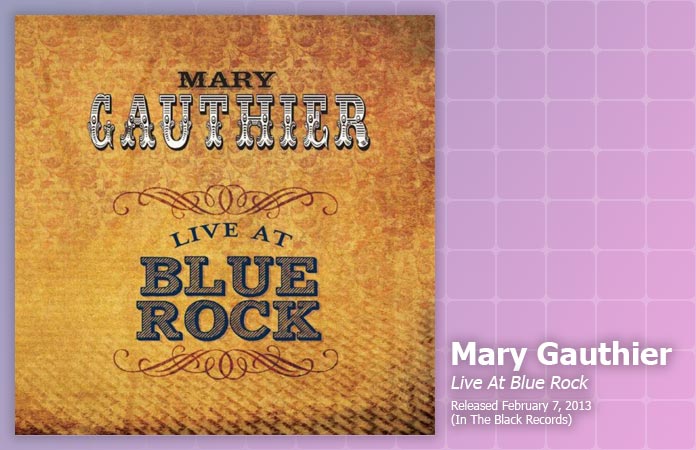
There’s probably never been a more honest songwriter than Mary Gauthier. From her earliest days in music, taking up songwriting after becoming sober at 35, she’s created characters whose struggles—with adoption, addiction, sexuality, homelessness, rootlessness—have closely mirrored her own. The road can be rough, but Gauthier’s an expert in finding the spark of hope in the saddest of situations.
Over six studio albums, commencing with 1997’s Dixie Kitchen, Gauthier’s proven herself to be a storyteller of the first order. If the mood ever hits her, she’d be as great a novelist as she is a songwriter. Worlds rise and fall in her songs. Her characters reach grasping hands out of the cold darkness for one last shot at redemption. They grab it, sometimes. Sometimes it slips away.
Her songs have been covered by everybody from Blake Shelton to Boy George, and while you ponder that mental image, know that nobody’s done ’em better than Gauthier herself.
It took her a long time to record a live album, but the outstanding songs and powerful performances on Live At Blue Rock prove it was worth the wait. Recorded live at Blue Rock Artists Ranch in Austin, Live At Blue Rock presents 11 of her finest, eight of which were written or co-written by Gauthier.
Assemblog: February 1, 2013
Published on February 1st, 2013 in: Assemblog, Feminism, Film Festivals, Movies, Science Fiction, Trailers |
Vanishing Waves
New this week on Popshifter: Paul examines “Wrestling’s Dark Heart” and reviews the game Cart Life; Maureen recommends The Sessions as “a gem of a film;” I get excited about new music and videos from Parenthetical Girls, Iceage, and Jesca Hoop and review the excellent but troubling film Compliance; and Elizabeth talks about Netflix, Wall Street, and why televangelism means we can’t have nice things like a la carte cable in this week’s installment of “TV Is Dead, Long Live TV.”
New Jesca Hoop Single/Video: “Ode To Banksy”
Published on January 30th, 2013 in: Current Faves, Feminism, Music, New Single, New Video |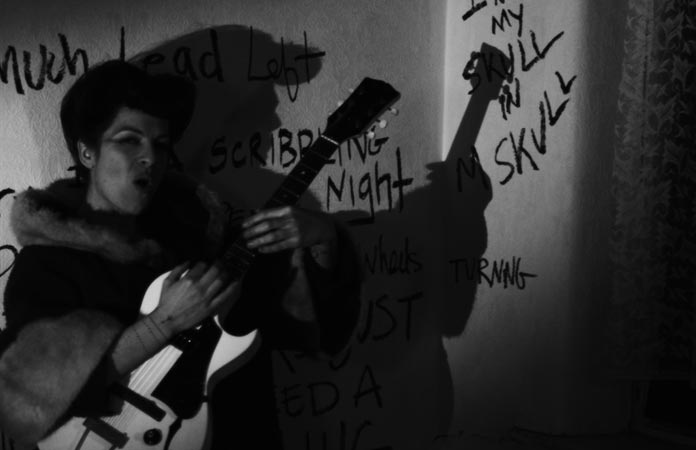
The third single from Jesca Hoop‘s amazing The House That Jack Built album (review), is out now and there’s a video to go with it.
“I’ve been a fan of Banksy for ages,” explains Jesca. “This song is a splatter of inspirations that I have gathered from his pieces round the world. There are four or five specific pieces that inform the lyrics. I named the song ‘Ode To Banksy’ because, as a huge fan, I much prefer to keep the mystery of his identity alive . . . and while I was writing the song there were big press blasts to reveal his identity . . . which I ignored. I’ll keep him masked, thank you! This song is like pop art itself . . . for art’s sake. I am also a big a fan of Bobbie Gentry and her song ‘Ode to Billy Joe’ is a long time favorite of mine . . . the thought of the death of a great intrigue gave me a good excuse to write my own Ode.”
“Ode To Banksy”—with its catchy chorus and insistent guitar riffs—is another perfect example of the beautifully diverse talents of Ms. Hoop. If you haven’t yet heard The House That Jack Built, I highly recommend it.
Jesca Hoop will be supporting I Am Kloot on their February tour of the UK.
Tour Dates:
Feb. 12 – GLASGOW, Oran Mor
Feb. 13 – LEEDS, Irish Centre
Feb. 14 – MANCHESTER, The Ritz
Feb. 15 – MANCHESTER, The Ritz
Feb. 18 – NOTTINGHAM, Albert Hall
Feb. 19 – LONDON, Barbican
Feb. 21 – BRIGHTON, St Bartholomew’s Church
Feb. 22 – CAMBRIDGE, Junction
Feb. 23 – BRISTOL, Trinity
Feb. 24 – COVENTRY, Warwick Arts Centre